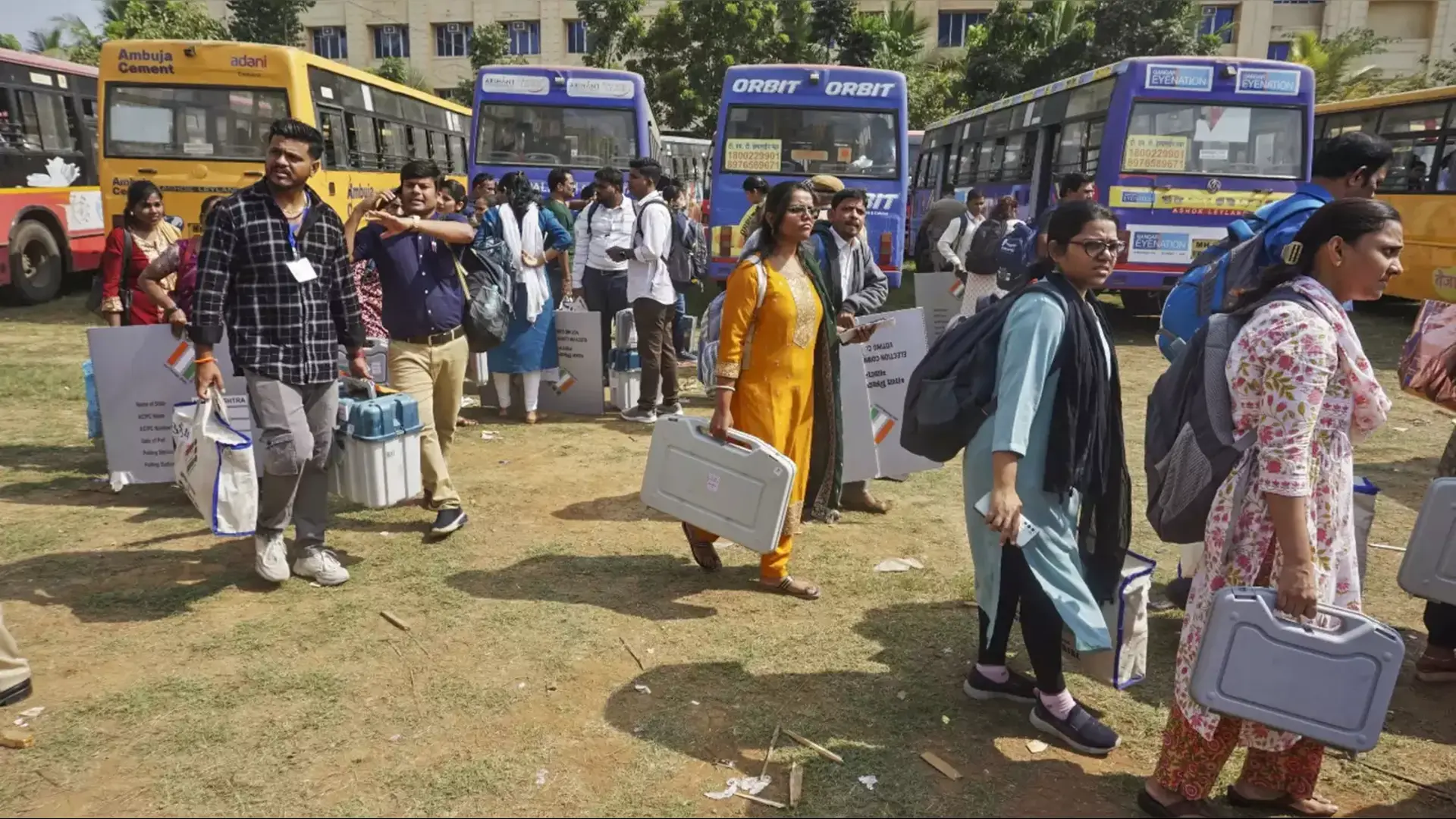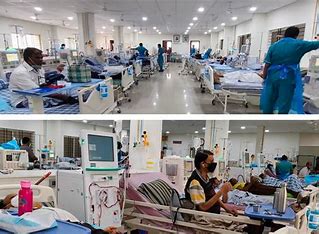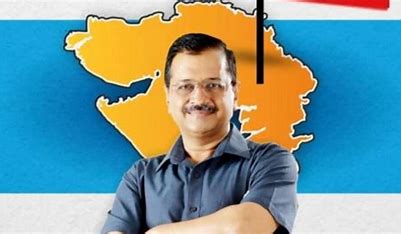
A non-judgmental and caring approach is what people suffering from mental health issues seek from a therapist, psychiatrists, clinical psychologists or counsellors. Finding the right diagnosis can considerably reduce the anxiety and depression levels and if wrongly diagnosed, it can make the situation worse. This is a valid concern for the youth who are often uncertain about whether they need counselling and how to seek professional help. From helping people identify what triggers the negative behaviour to develop positive coping mechanisms, individuals, couples, youth and children will notice a magnitude of difference in their lives. The pandemic has heightened the mental health issues amongst those who were already finding it difficult to cope up with it. Covid-19 has aggravated mental stress, anxiety and paranoia amongst people including the youngsters, says Shumita Kakkar, founder and director of United We Care.
The Indian Lunacy Act was passed in 1912 and it took the government 75 years to finally amend it to the Indian Mental Health Act 1987. However, despite rapid urbanisation of culture and lifestyle changes, and despite rising incidences of mental illness in the country, it took the government a good 30 years before it amended the previous Act and passed the Indian Mental Health Care Act 2017. Dr Ishita Mukerji, a senior psychologist at mental wellness centre kaleidoscope, a unit of Dr Bakshi’s Healthcare asserts, “Ignorance, disinformation, stigma and a lack of appreciation are few of the barriers that stand in the way of an effective mental healthcare system. This timeline indicates that the field of mental health has not received an adequate amount of economic and political importance that it should have long back.”
NIMHANS carried out a national-level survey on mental health care and disease burden in the country back in 2016. Few of the major points they indicated are mental health programs in India are a low priority on the public health agenda; health information system across the country do not prioritise mental health; existing health care facilities often lack a proper mental health care program; an acute paucity of mental health professionals across the country; lack of proper institutional care facilities and low coverage of the District Mental Health Programme.
Discussing the complication associated with complex mental illnesses, Vidit Bahri, MD at Sukoon Hospital, clinically governed by Fortis Healthcare says, “Mental Health conditions such as bipolar, schizophrenia, clinical depression etc, require medical intervention in a controlled and monitored environment. The team of psychiatrists, psychologists, neurologists, counsellors, social workers and art-based therapists offer patients a haven to recover amidst surroundings equipped with the latest technology and equipment.” He further adds, “Recovery in mental health is a gradual process as patterns take time to observe, diagnose and manage. We have made sure that patients have the environment and care to recover. The residential patients got through a rigorous daily schedule of activities, therapy, yoga and physical therapy. In some cases, we encourage family members to stay with the patients to add an extra layer of comfort.”
Shumita says that like one consults a doctor for a physical illness, there should not be any hesitation to seek the help of a professional who is trusted, unbiased and nonjudgmental. “We are here to solve your mental health problems, bring positive change in your life and not know your identity. The National Health Department says that therapy is the best cure for stress and anxiety. Open up and talk it out, get the right advice and take the right decision,” she adds. Ever since the pandemic started, experts have been receiving increased queries in terms of issues pertaining to relationships, uncertainty as well as anxiety amongst LGBTQIA+ and children. Men have a different coping mechanism and therefore needed to be catered accordingly by the experts. Shumita asserts that mental health problems amongst youth are also on a spike.
Roadblocks in treatment
For the youth, seeking professional help becomes difficult due to uncertainty regarding when to seek help and how besides the financial constraints. Talking about the unsatisfactory experience with therapists, Pratishtha Nangia, 25 says, “I was suffering from depression for two years and didn’t even know then. It was when the anxiety also kicked in and along with it came the realisation that it can get worse, I decided to consult a therapist. It was a problem looking for who to contact since many people here do not go for therapy.”
However, simply searching online for good psychologists or therapists can be tricky. Pratishtha adds, “It becomes a hit and trial process. I tried talking to threefour therapists, on a phone and video calls and couldn’t connect with them mainly because they were repeating things that I already knew. One of the therapists I spoke to, sounded amateur. It proved to be a bad experience.” She informs that the charges for sessions are too high at times. To be able to take sessions at a young age with monetary constraints and that too without family’s in several cases, as they will not understand the need for therapy, becomes difficult.
There aren’t many quality therapists and psychiatrists in our country in my experience as many of those I consulted had biases which caused hindrance to improve the condition, believes Priyanka Ramesh, 27. She says, “My bout with depression started in 2017 and I initially sought help from a counsellor in my college. He was judgmental and it somehow didn’t work out for my benefit. Then there was another who put the whole blame on me which made my situation worse. Unfortunately, even after seeing many psychiatrists including those who charged hefty amounts, it did not prove to be of much help.” Her disappointment and bad experiences led her to take the situation in her hands by making conscious changes in her lifestyle, reading books, cutting off ties with toxic people and adding positivity. She says that it’s still a struggle on some days and a constant battle.
Similarly, anxiety issues prompted Nikita Chaudhary, 25 to look up therapists on the internet. However, most of them were psychologists and she could hardly find therapists. Sharing the difficulties she faced, Nikita says, “I hesitated to reach out to most. I’d filled some online forms on different platforms which claimed they had a good team of therapists and started receiving desperate calls from them about their monthly and weekly plans. I was already in a bad state and this scared me, even more. It’s a per session game for them but a lifetime experience for us.”
It took her almost two months to find the right person through a friend’s reference. She elaborates, “I looked up on Instagram and found a page. It was a team of 10-15 people but they were counsellors which I did not want. I even took a session with a counsellor but she told me that she was not the right person. A friend of mine who’s a psychologist referred me to a therapist and that finally helped me.”
Most of the people are afraid of the uncalled judgments by society and sometimes their family in addition to the myths and stigmas related to mental health issues.
Even when a person decides to seek professional help, the first step is realising and recognising the symptoms which take time, believes Deepak Kumar Bhagatt, 29. “In 2015, I was dealing with trauma and stress related to exams besides my sexuality. From Satyamev Jayate, I came across the Naz Foundation (India) Trust. It took me a month to muster the courage to seek help, it was not an easy decision, since there were apprehensions about psychotic drugs and treatment which was fuelled by society. I consulted two counsellors there, had therapy sessions and they helped me a great deal to overcome the mental health issues,” adds Deepak.
Rakshit, 22, came in contact with the counsellor through Sanjivini Society for Mental Health. “I used to find myself very irritable, crying, lacking confidence and couldn’t understand what is happening in my life. I reached out to the organisation to seek the answers. They arranged a meeting with the counsellor. After a few sessions, one major problem that surfaced was suppressed emotions. After this, all the bottled up emotions were following out of control. After regular counselling sessions for around eight months in 2019, I was alright. This was the best decision of my life.”















